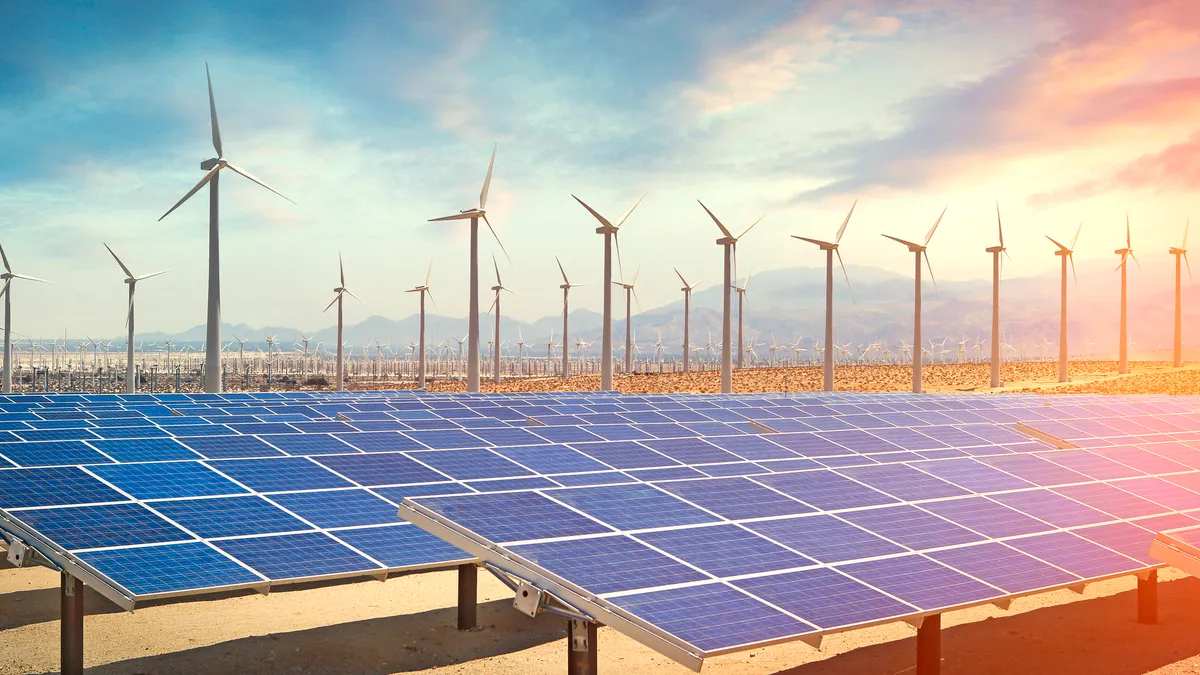The North American Electric Reliability Corp. is considering rule changes that would require smaller wind, solar and battery generators, known as inverter-based resources, or IBRs, to register as assets on the bulk-power system, or BPS.
About 14% of owners and operators of BPS-connected IBRs “are not currently required to register with NERC or adhere to its reliability standards ... leading to reliability concerns,” NERC said in a Sept. 13 announcement of the proposed rule changes.
The primary change involves requiring registration of IBRs that have an aggregate nameplate capacity of greater than or equal to 20 MVA and deliver that capacity to a common point of connection at a voltage greater than or equal to 60 kV. MVA is a unit of power known as “mega volt-ampere” and measures apparent power.
Owners and operators of IBRs greater than 75 MVA connected at 100 kV and above are already subject to registration, according to NERC.
“With the amount of investment that’s taking place in our industry, we’re going to have bigger and bigger potential reliability issues with renewable resources,” Peter Heidrich, principal coordinator of certification and registration at SERC Reliability Corporation, said in a July webinar discussing the potential changes to IBR registration.
Heidrich is also co-chair of a NERC group focused on resource registration and which worked on development of the proposed rule change. He said that from 2017 to 2021, the capacity of traditional resources on the BPS declined from 1,010 GW to 981 GW, while IBRs grew from 103 GW to 176 GW.
“This trend is concerning, since the number of conventional resources has been gradually declining and the number of IBRs has continued increasing [but] at a significantly lower BPS penetration,” he said. “We need to take some action to start developing our processes, procedures, registration criteria, so that we are capturing the right facilities and the owners and operators of those facilities.”
NERC will take comments on the proposed rule change through Oct. 30.














